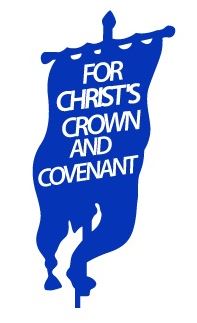Reformed Presbyterian
Who are the Reformed Presbyterian Church? The easiest way to answer this question is to look at our name and at our motto.
Reformed
We believe to be Biblical the doctrines of the Reformation church, particularly expressed in the Westminster Confession of Faith. We must not neglect these doctrines, as if they are barriers to Christian fellowship. Rather we teach these doctrines which exhibit the glory of God and are for our good. (Read more – Westminster Confession of Faith)
Presbyterian
Presbyterianism is the government of the church by ministers and elders (presbuteros in the Greek New Testament). A local congregation ordinarily has a minister and multiple elders who sit as a Kirk Session. The Session has been charged, by the authority of Christ’s Word, to watch over the flock. The Presbytery is a regional body made up of ministers and elders from multiple congregations to take decisions for the benefit of the cause of Christ in that region. Presbyterianism is a great gift from God that benefits the church in ways that often go unnoticed. However, we are not Presbyterian because of these benefits. Rather we believe that Presbyterian Church government is the way that God commands the church to be ordered. To find out more about Presbyterianism you can read (Read More – The Form of Presbyterial Church-Government.)
For Christ’s Crown and Covenant
This motto reminds us of two truths that we believe to be essential to the welfare of our nation. First, Christ is our King, for all authority has been given to him, in heaven and on earth and He is King of kings and Lord of lords. To him, must every knee bow. The Scriptures show us that it is not enough for individuals to confess Christ, but that nations must also kiss the Son and obey Him. Modern Scotland hates King Jesus, both in the homes of ordinary people and in the Government at Holyrood. The Reformed Presbyterian Church testifies to the duty of our nation to confess and serve Christ as Lord.
Secondly, we remember the covenants made in our land, particularly the National Covenant (1638) and the Solemn League and Covenant (1643). These covenants pledge our obedience to Christ in several areas of life, not just as individuals but also as a Church and nation. Just because these covenants have been long forgotten does not mean that they are not relevant to us today. It is a matter for great sorrow that we have forsaken our promises to the Lord and that our land pretends like these promises were never made. May the Lord grant a spirit of repentance!
